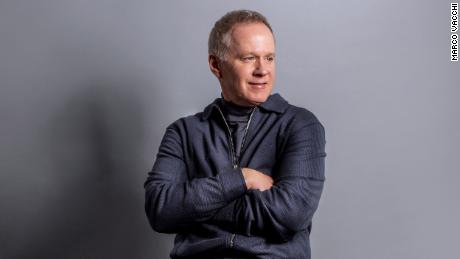Patrick McEnroeis ESPN's tennis commentator.He is a former professional tennis player and captain of the Davis Cup team in the United States. The views expressed in this commentary are his own. See moreOpinionson CNN.
London (CNN)When first heard in February, the All England Lawn Tennis Club (AELTC) with Russians from Wimbledon after Russia invaded Ukraine. I was considering banning Belarusian players. , I was surprised. After all, in most other major leagues, individual Russian athletes can continue to work in their respective sports, such as the NHL in the US and Canada, the European Soccer League, and the World Tennis Tour.


I went to see if AELTC made the right decision I came. But after a lot of discussions with people at both ends of this political debate, I came to a conclusion because it is political. The club made the wrong call.
Next, the club mentions "duties to athletes, our community, and the wider British people as a British sports institution." I am intrigued by this part of the statement on many levels. How are Wimbledon's obligations to players different from other professional tennis tournaments around the world? Yes, we all know that Wimbledon is unique and special-and they don't want us to be reminded of that.
Undoubtedly, Wimbledon is very authoritative. This is one of four Grand Slams that take place each year, except between World War and the pandemic. But to be honest, it's a different tournament for players.
And what about Wimbledon's obligations to the community and the general public? All other professional tennis tournaments around the world have similar obligations. Especially the big event in Europe in the last few months. None of these events, such as the French Open, one of the four "major" tennis, and the Italian Open in Rome, had any problems with this war, or especially with individual players in Russia and Belarus.
The International Tennis Federation (ITF), the governing body of world tennis, oversees the Olympic tennis tournament and holds annual team tournaments in each country. Like most other major sports, all Russian and Belarusian teams are properly banned from international competitions.
It's not just the top players who have lost the opportunity to play at Wimbledon this year, but countless other pros as well. Is it really fair?
In two men's glass court events leading up to Wimbledon, Medvejev reached a series of finals. One is the Netherlands and the other is the tournament in Germany. With the participation and success of players like Medvejev, there was no protest or confusion.
Yes, Wimbledon is bigger, global and authoritative than these events. However, given what has been seen at other sporting events around the world, if Wimbledon allows Russian and Belarusian athletes to compete, it is less likely that they will face problems that cannot be addressed.
In many cases, Wimbledon has been ahead of the curve in almost everything it did to promote the game and its events. But this time, there were double drawbacks.


